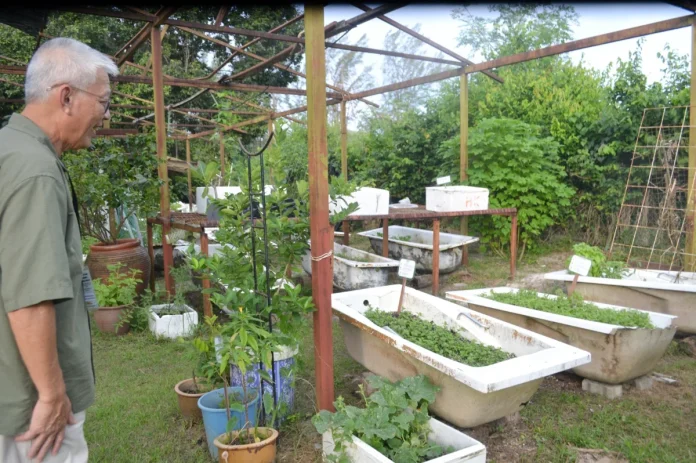Wastewater naturally filtered before reaching sea, creating self-reliant aquatic ecosystem: Resort director
LANGKAWI: While rising pollution threatens island tourism nationwide, a longtime hotelier here has built low-cost sustainability systems that work, but says Malaysia is unable to realise what is at stake.
Frangipani Langkawi Resort and Spa group managing director Adj Prof Anthony Wong said his resort has managed to lower its energy spending to around 4% of operating costs, compared with the 8% to 12% common among hotels that rely on conventional utility systems and waste management methods.
Wong, who has operated the resort for two decades, said the approach is based on practical, low-cost measures that can be replicated elsewhere.
“Many people are not aware of the need to protect the environment. There is a ‘no worries’ mindset. The belief is that everything would be handled by the government.
“When I started, I wanted to show people how it could be done. If they know how, it is not expensive. It is practical and it saves money.”
He said the investment was initially projected to deliver returns in about eight years, but rising water tariffs shortened the period to around six and a half years.
The resort plans to expand this with an additonal 1.5 million litres of underground rainwater capacity, which he estimates would reduce water bills by 40% to 50% over the coming years.
“All hotels have monsoon drains. I use the monsoon drains to harvest water. I put a cover so people do not fall in, I keep fish in it, and I use the water for the garden. The system works!”
He explained that a planted wetland system allows wastewater to be naturally filtered before reaching the sea, reducing odour and pollution while creating a self-sustaining aquatic ecosystem.
“Wastewater rushes via monsoon drains to the sea. You can run parallel planted drains so that water soaks into the land first, benefitting the plants, then overflows to the sea.
“Water hyacinth is hardy and removes heavy metals. In a planted water body, fish eat mosquito larvae, fish waste feeds the plants and plant photosynthesis oxygenates the water.
“I do not need to feed the fish. They live off algae on the roots. It forms a small circular ecosystem.”
Wong said the resort does not send organic waste to landfill, relying instead on composting and integrated food production systems involving chicken, ducks, edible coastal plants and fish reared in constructed wetlands.
He noted that the wetland system has taken over 26 years to gain formal acceptance, mainly due to institutional fragmentation.
“The system has been approved by the Natural Resources and Environmental Sustainabiility Ministry. It is recognised as one of the most efficient systems.”
He said in locations without centralised treatment access, operational gaps in wastewater management have resulted in repeated sludge release episodes, impacting nearby beachfront hotels.
“We have submitted reports multiple times. The ‘solution’ we are told is to build a wetland to stop it going straight to sea.
“So I proposed to discharge into a constructed wetland first. The wetland cleans the sludge. It saves money in the long term and creates green jobs.”
He emphasised that while government coordination is needed, the transition would depend on changing mindset.
“Our life is short. When our grandchildren ask what we did for the environment, we should have an answer.”










